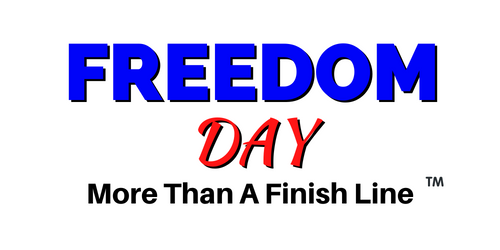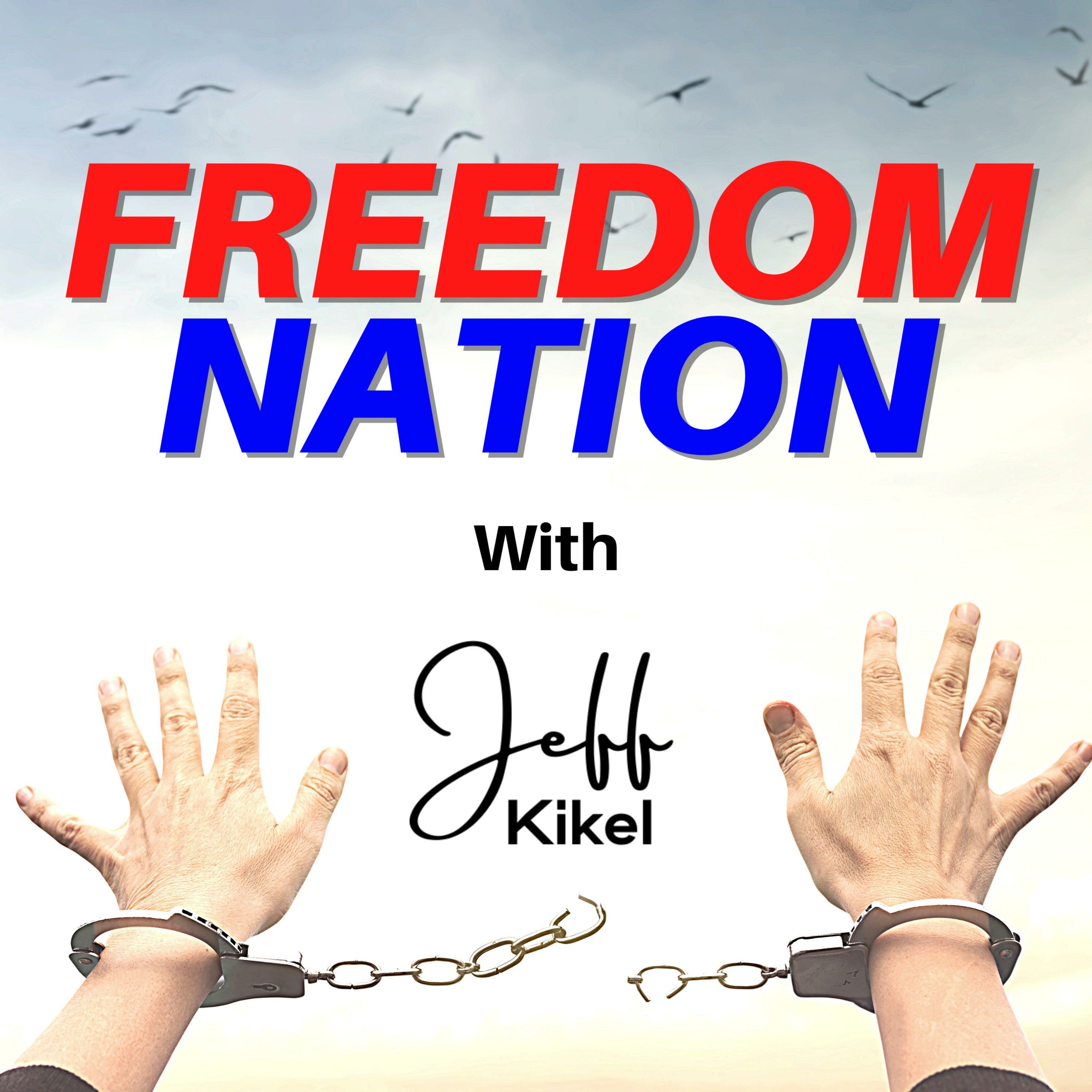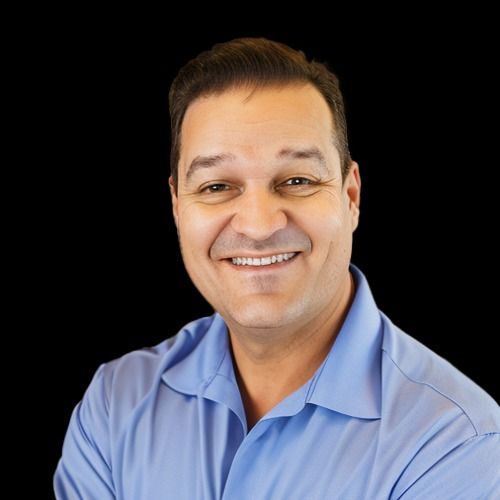Episode 113
The Freedom Day Method - Budgeting
Budgeting is a fundamental financial tool that empowers individuals to take control of their money, allocate resources effectively, and pave the way for financial stability and success. In today's world, where financial pressures and uncertainties abound, mastering the art of budgeting has become more crucial than ever. In this episode, we'll dive into the 3 types of budgeting.
About Jeff:
Jeff spent the early part of his career working for others. Jeff had started 5 businesses that failed before he had his first success. Since that time he has learned the principles of a successful business and has been able to build and grow multiple seven-figure businesses. Jeff lives in the Austin area and is actively working in his community and supporting the growth of small businesses. He is a board member of the Incubator.Edu program at Vista Ridge High School and is on the board of directors of the Leander Educational Excellence Foundation
Connect with the Freedom Nation podcast at https://freedom-nation-podcast.captivate.fm/
Connect with Jeff:
Instagram: https://www.instagram.com/freedomnationpodcast/
Twitter: https://twitter.com/JeffKikel
LinkedIn: https://www.linkedin.com/in/jeffkikel/
Thanks for listening!
Thanks so much for listening to our podcast! If you enjoyed this episode and think that others could benefit from listening, please share it using the social media buttons on this page.
Do you have some feedback or questions about this episode? Leave a comment in the section below!
Subscribe to the podcast
If you would like to get automatic updates of new podcast episodes, you can subscribe to the podcast on Apple Podcasts or Stitcher. You can also subscribe in your favorite podcast app.
Leave us an Apple Podcasts review
Ratings and reviews from our listeners are extremely valuable to us and greatly appreciated. They help our podcast rank higher on Apple Podcasts, which exposes our show to more awesome listeners like you. If you have a minute, please leave an honest review on Apple Podcasts.
Transcript
Hey everybody. It's Jeff here once again with the Freedom Nation podcast. And I want to share with you today, a little bit about budgeting. Now, if you remember, and if you've seen our previous video on the Freedom Day method where I went through the entire method broke it down for you. Today, we're going to focus on the first step of the Freedom Day method, which is budgeting. So there's three different types of budgeting. So stay tuned for that on the show.
FN Intro/Outro:Welcome to the Freedom nation podcast with Jeff Kikel. On this show, Jeff shares his expertise in financial and retirement planning from a different perspective, planning for your Freedom Day, which is the first day that you wake up and have enough income or assets and do not have to go to work that day. Learn how to calculate what you need, how to generate income sources, and listen to interviews from others who've done it themselves, get ready to experience your own Freedom Day.
Jeff Kikel:Hey, everybody, welcome to the show, and welcome to learning a little bit about budgeting today. Now, I realize this is a horrible topic for most people, they are not interested in it, it seems to just Garner all kinds of issues. But we're going to talk about budgeting and I'm going to break it down very simple for you. There's three types of budgeting that are out there. The first is what's called the 5030 20 method. It's actually relatively new that started coming out there a few years ago with the fire movement, but it helps you to really segment out your your budget. The second method is what's called the zero based budgeting method actually was developed for businesses and then Dave Ramsey really brought it into the common lexicon. And really, it's what they use the the Dave Ramsey method to do things, and it's a way of budgeting. The last one is what's called the envelope system, it's probably the most old school way of doing things, and it really works for people. Now, I am not here to tell you what is the best way for you, you're going to have to figure that out, you're going to have to figure out what works for you. Now let's start off with the 5030 1050 3020 method. So we start with 50, we're going to break this our budget up into three things. So the 50%, the 30%. And the 20%. Well, what is the 50% the 50% is essentials. This is what you have to pay rent or have to pay a mortgage, you have to have a place to live, you have to pay for food. So those are going to be things like rent, food, and utilities, then you have discretionary spending. Discretionary spending is things that either are not consistent, they may come in occasionally, discretionary spending is also things that you don't necessarily have to have. Now I realize some people cable is a necessity, or an essential, but it really isn't necessarily. Netflix is not an essential, it's a discretionary expense, you could get rid of it if you had to. There's lots of different ways that you can watch TV today, some are free, some have pay as you go type things. One of those is things like Amazon, it's a pay as you go. So I don't keep paying on a monthly basis, I just pay for programming whenever I want it. In the end, sometimes it can work out to be the same. But it's not something I have to do all the time essentials I have to do, I have to have those to pay for everything. The final 20% is savings. So it is that piece of the pie that I want to be placing towards savings. Now, you could be using that for the more traditional way of doing things. So I put 20% towards savings, that money is going towards retirement, I'm amassing a bunch of money, the way I look at it and the way I think of it in the Freedom Day method. Because with us with the Freedom Day method, we're trying to get out of what we're doing as quickly as possible. So what we want to be doing is putting that money towards savings so that we can then turn that into an asset we can buy an asset that begins to generate passive income. So I want you to think not in that long term approach of building up this massive amount of capital, that you can then turn into a small little source of passive income. You want to think of I want to buy passive income or passive assets that generate passive income, where I can put the least amount of assets in and generate the most amount of income and that'll be a subject of another episode down the road. So this is our first method of budgeting the 5030 20 strategy. So this is a great strategy for people that disciplined about what they do. It also allows a little bit of flexibility there, and that maybe you have more essential expenses one month, something breaks, something happens that you have more expenses, you have a medical bill or something like that. So you can shift money from your discretionary spending over to your essentials, if you have a bad month or something like that. So it gives you some flexibility there. Now, the next method of budgeting is what we call zero based budgeting. So it's a little bit less flexible in its approach. But that's actually good for people that really need more discipline to what they're doing.
Jeff Kikel:If you have a hard time, being able to adjust expenses around zero based budgeting works very well because it accounts literally for every single dollar that you have. So here's how zero based budgeting works. So we have zero based budgeting, and it works with your income first. So what we do is we take our income that we have coming in, let's assume we make $3,000 a month net. So this is after taxes, we don't have to account taxes into this, this is what hits your paycheck when it's your bank account, then you want to start looking at your expenses. So your expenses might be things like rent, let's say your rent is $1,200. You have utilities, okay, so my utilities are, let's say, $200 of this, that's every utility that I have left pay for food too. And there, maybe that's another $300 a month, and we just keep chunking our way down the line. Now we may also have debt. So let's say we've got school loans that we have outstanding, that school loan may be $200 a month. And here, we may have some credit card bills that are outstanding that are out there, that might be another $100 a month, and we see 3000, we start chunking these things out, what we want to look at then is okay, this is all the stuff that I have, I still have $3,000, I'll get I need to do some kind of fun things. So maybe I'm going to allocate $300 A month towards fun things going out all those type of things, maybe eating out is in there. But once you start to analyze is if I'm doing all these things, and I get to the end of the month, and I've run out of money, or I've allocated my money and I ran out of my money, I'm in trouble. And I've overspent, it's a very great way to analyze why you might be going deeper into credit card debt, because you're really not looking at what you're spending. And then it's really easy, you go through the month, and okay, soon as my rents paid, I can mark that off the list. When my utility bills come in, and I pay those I can mark them off the list, there are some great software's that you can use. If you go to Dave Ramsey's website, there's actually you can sign up for their easy budget system, that's this, basically an online version of all of this stuff, you can link it up to your bank account, and it will keep track of everything you're doing. The biggest thing about this is when we get to the end of our budgeting, so you plan this out at the beginning of the month. And then okay, I've got, let's say an extra $400, that hasn't been allocated to something during the month, I can use that money then to attack my deaths using the Debt Snowball. So this allows you to plan your month at the very beginning of the month and know where you're going to lay things off. And if you are somebody that has trouble with discipline and overspending, this is a great way to look at it because I might get to the end of the month. And as I'm analyzing the previous month, I may find that I spent $500 on food, and I'm trying to figure out why I ended up plus $200 in this category, maybe food, I spent an extra $100 That I wasn't planning on spending, maybe eating out, I fell off the wagon this month and spend an extra 100. Well, I've pretty much eliminated my extra $400 That I could put away to debt. And if I did this in multiple categories, I might actually be creating more on my credit card, which puts me deeper and deeper into the situation. So this allows you to analyze your spending and analyze how you're doing things doesn't mean that you can't spend a little bit more on food but that's going to take away from something else. And it allows you to stay on track with everything you're doing.
Jeff Kikel:The final method is what's called the envelopes method. Now the envelopes method is just simply exactly what it sounds. It's literally taking money out getting it in cash and putting it in front Do an envelope. And that's the money you'll spend. So you might have an envelope that has money for food at it, you might have an envelope for rent, you might have an envelope for utilities, and you have your money in each of those envelopes. And whatever you have in that envelope is all that you can spend. This is a method, if you have a really hard time budgeting your money, this is a more real way of feeling it. So if you're somebody that the numbers on a budget just don't mean anything to you, or they just don't resonate with you, putting money in an envelope definitely will taking that money to the food envelope to the grocery store. And knowing you only got $500 in there, you're going to think very carefully about what you spend. At that point. This budgeting method was probably developed by your great grandmother or grandmother. This is how they used to do things back in the depression and the 40s and 50s, they would put money in envelopes. And then they would just take, they also didn't really trust the banking system because they'd been through the Depression. So they would put money in envelopes, and then that's the money they would spend. And if there was any money left at the end of the month that went into savings, or they would use it to have a little bit of fun at the end of the month because they manage their budget. I'm not a big proponent of this system, because I one trust the banking system, and two, I don't trust leaving money in an envelope that could get lost someplace. But if this makes sense to you, it's a great method for people that need to have that tactile feel of actual money in their hands, knowing that, okay, when I run out of this envelope, there isn't any more anyplace else. So I need to be very careful about what I spend. So that's the three different methods of budgeting. I hope this was helpful for you. I hope this helped you understand what you can do, make sure that you subscribe to our channel, hit that little button that it looks like a bell that is the notification button because we are putting a ton of these things out. In anticipation of the upcoming Freedom Day book coming out, I wanted to share a bunch of the topics from the inside of the book. So we'll get you excited and it would also give you a little bit more information than I can write in the book. Make sure you subscribe, please. And all have comments, love likes. So make sure that you if you like this, share it with somebody that needs that help from a budgeting perspective. And we will see here the very next time


